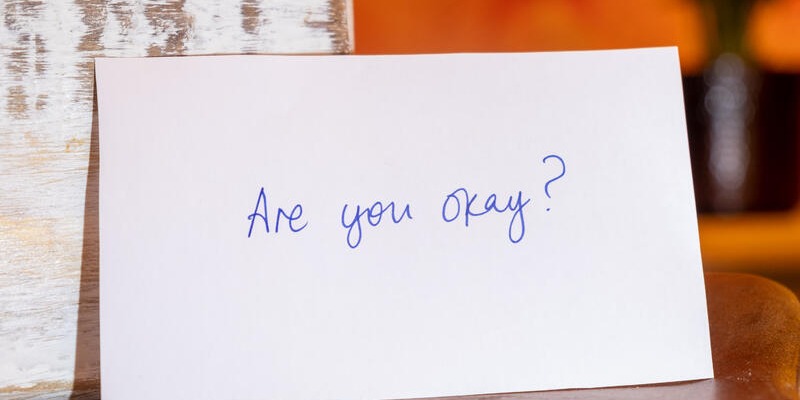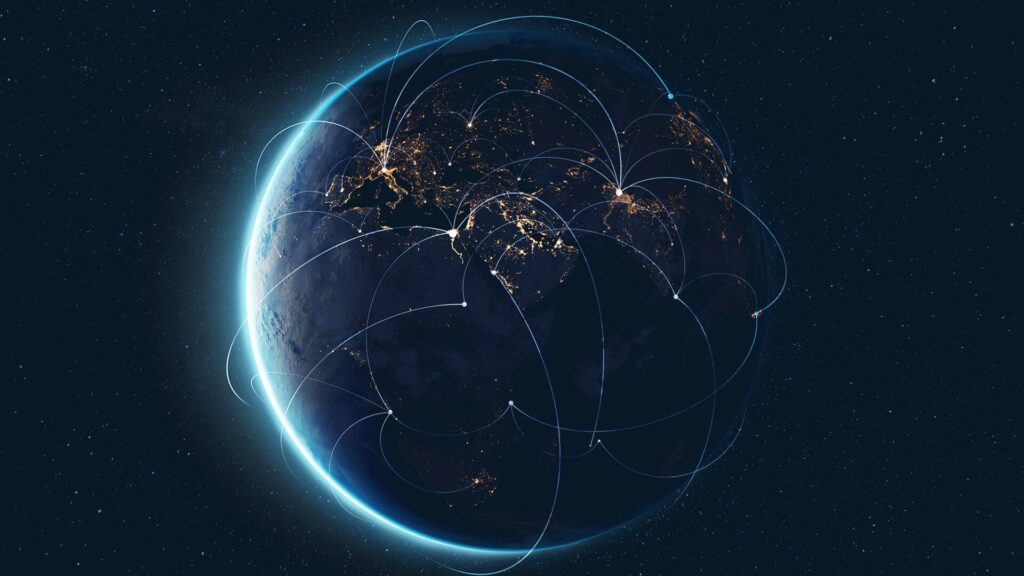At Dataminr, we take mental health as seriously as physical health, especially during a time where the pandemic’s influence has blurred the lines between work and home. This shift has caused an increase of stress and anxiety for working families and individuals as they try to strike a balance.
This paradigm shift has been one of the biggest challenges—for not only employees as we adjust to this new, compact lifestyle—but for employers as they realize the importance of holistically addressing employee health to prevent burnout and productivity declines. In fact, according to the 2021 Mind the Workplace Report, it’s important that employers educate employees and provide resources on mental health. Those that don’t are less likely to be perceived as a safe environment for employees who live with mental illness.
With 1 in 5 adults in America experiencing a mental illness, and nearly 1 billion people around the globe living with mental disorders, it was important for me to be a part of Dataminr’s efforts to provide support, reduce stigma, raise awareness—and foster healthy dialogue on issues, challenges, and solutions regarding mental health, neurodiversity, differently-abled, and the chronically ill.
As such, this year we launched Balance@Dataminr to focus on these issues and provide a safe haven for our global team. It’s widely recognized that mental illness and distress can increase the risk for physical health problems such as stroke and heart disease. And, that the events over the last 18 months—from the pandemic and natural disasters to incidents and conversations on social injustices and racial disparities—have led to a spike in moderate to severe symptoms of depression and anxiety.
Balance isn’t the only Dataminr ERG focused on mental health. Check out what our leaders from other ERG groups have to say about mental health and their communities.
Why is Balance@Dataminr important to you?
Pravek Karwe, Balance@Dataminr and Product Manager
Prior to the pandemic, one in ten adults reported symptoms of anxiety or depressive disorder. During the pandemic, that number went up to about 4 in 10 adults. As someone who started at Dataminr remotely, the diverse impacts of the pandemic forced me to take a hard look at what balance looked like within this new normal.
Burnout, depression, and stress became all too common for many of those working from home as their professional and personal lives blended. Personally, I’ve combated those feelings by working with members of the Dataminr community who were empathic, understanding, and inclusive.
I realized how important it was to create a larger platform at Dataminr, one that centered on mental wellness, neurodiversity and chronic health issues in order to promote more balance in our lives. Having this supportive community not only helps employees, but benefits the company as a whole. In co-founding Balance@Dataminr, it’s critical that we continue to push forward and focus on the positive impact we can have by providing and curating a supportive environment for all.
How can workplaces help support parents?
Roshan Leslie, Parents@Dataminr and Director of Customer Marketing
From quick-changing school closures and stay-at-home orders to productivity pitfalls and burnout, parents’ pandemic challenges have varied in the last 18 months. The best way for workplaces to step up is to encourage empathetic leadership and adjust benefits to match the current state of the world. The former is especially important because a lack of support can cause parents to either mental exhaustion, cut back hours at work or not apply for promotions, which all can have long-term impacts on their careers.
What are some mental health issues faced by veterans? And what can workplaces do to support them?
Josh Morgan, Service@Dataminr and Sr. Customer Success Manager
Suicide rates amongst our veterans and service members are at an all time high. And although there are a number of resources available to help combat this vicious cycle, many of these warriors avoid taking the necessary steps to protect their mental health for a variety of reasons. Where we as a community can affect the most change is through shared conversation and relatable experiences.
The scars on our hearts are shared by our brothers and sisters who feel or have felt the same pain. The lessons learned to fight our internal battles should be no different than those we use to fight our next war.
We MUST share these feelings and learn from each other so we don’t lose another.
What are some of the best ways you’ve seen workplaces address the mental health needs of the MENA community? What makes these efforts effective?
Serena Chaudhry, Salam@Dataminr and Associate Director, Domain Experts
Dataminr’s Salam ERG was established to create greater awareness of the Middle East and North Africa (MENA) region. Beyond the cultural impact of the group, one of our key aims is to build deep relationships among colleagues and support each other through the often tumultuous events that can define the region––from wars and political upheaval to economic instability. Through the Salam ERG, Dataminr has helped to create a safe space where employees are able to freely express their emotions about the challenges they, or their loved ones, may be facing, and get the communal backing and strength to both uplift and support their mental health and wellbeing.
It’s well documented that the economic and health impacts of COVID-19 have disproportionately devastated the Black community. That being said, even prior to the pandemic, Black Americans were 20 percent more likely to experience mental health issues yet, Black patients are less likely to utilize mental health resources, such as therapy, counseling, and psychiatric care. As conversations about mental health become more mainstream, do you see that changing?
Michaela Tummings, Black@Dataminr and Customer Success Associate
Yes, slowly but surely. Mental health is still heavily stigmatized within many Black communities. But, between increased mainstream conversations and employers broadening mental health and wellness benefits, we are going in the right direction.
With the latter, many workplaces, including Dataminr, are now taking into consideration the lack of access to mental healthcare, being empathetic to racial-battle fatigue, combating workplace microaggressions, and increasing inclusion and equity as much as diversity. Investment in these callouts can have great impact in attitudes toward mental healthcare in the Black community.
According to a SAMHSA’s national survey, overall mental health issues are on the rise for Latinx/Hispanic people between the ages of 12-49. Additionally, only 33% of Latinos with a mental illness receive treatment each year compared to the U.S. average of 43%.
At the same time, mental health and mental illness are still often stigmatized topics within these communities that also face unique institutional and systemic barriers that sometimes impede access to mental health services. How can workplaces best support these communities in getting access to resources and destigmatizing needing them?
Pamela Loaiza, Global Amigos@Dataminr and Domain Expert – Latin America
Many of us have family members and friends in LatAm, a region that is still fighting to manage the impacts of the COVID-19 pandemic with limited resources and a collapsed healthcare system. In addition to COVID-related strife, we also face higher rates of some mental health disorders, while battling socioeconomic disparities in health. The latter alone feeds into the lack of access to mental health services, interpersonal racism and stigmas.
Dataminr has empowered the Amigos ERG to establish a safe space to discuss hard topics and provide resources during difficult and positive times. Here, we’ve been proactive in addressing systemic racism and violence through awareness, mental health and wellness support, and open dialogue. These initiatives enable employees to feel heard, and be aware of ways to foster a more connected, supportive workplace.
People in LGBTQIA+ community are more likely than their counterparts to experience traumatic events such as discrimination, harassment, and hate crimes. In fact, a report last year showed that hate crimes based on sexual orientation represent 16.7% of hate crimes –– the third largest category after race and religion. What are some ways to support LGBTQIA+ employees?
Michael Howard, Pride@Dataminr, Global Lead and Talent Acquisition Program Manager
I am proud to be a member of the LGBTQIA+ community at Dataminr. I believe it’s important for workplaces to empower and support employees in being their authentic selves.
Whether it’s removing gendered language from benefits offerings and de-stigmatizing the use of mental health benefits, or providing support through ERG groups and ally networks, there are many ways to champion LGBTQIA+ employees.
I want people to know that there is so much beauty in authentically being who you are and it’s okay to seek out mental health support.
The pandemic has had a disproportionate social and economic impact on women. What are some ways employers can step up to support women’s mental health?
Sabrina Mawani, Women@Dataminr, Global Lead and Senior Corporate Counsel
It’s well documented that the pandemic and related societal disruptions disproportionately impacted women, therefore it would make sense for organizations to empathetically invest in striking a balance by reassessing their benefits and workplace culture. Recent research found that more than one in four working women are considering either reducing their hours or leaving their jobs, due primarily to burnout and household responsibilities.
This is where workplaces can step up. Consider reintegration programs, gender neutral parental leave policies, and create spaces for female-led employee resource groups––such as Women@Dataminr––where women can talk openly about their experiences, solicit feedback, and brainstorm pragmatic and workable solutions.
How does the rise in racist rhetoric and the anti-Asian violence affect mental health among Asian community and how can allies best support?
Pravda Parakkal, Asian@Dataminr, Global Lead and Domain Expert
Between COVID-induced prejudices and the ever-present “model minority” myth––it’s been a rough time for the Asian and Pacific Islander communities. They’ve experienced increased depression and anxiety, despite the fact that the percentage of Asians receiving health services is almost the lowest of all the racial and ethnic groups.
As an initial step, I think most would appreciate workplace allies taking time to educate themselves about what’s happening, acknowledge the impact, and give colleagues space to process and heal. Dataminr has been highly encouraging of our Asian@Dataminr ERG and our efforts to raise awareness, ensure our diverse voices are heard, and convert solidarity into action––allowing us to make a positive and long-term impact on our communities.
Interested in joining our team? Check out our open roles.




